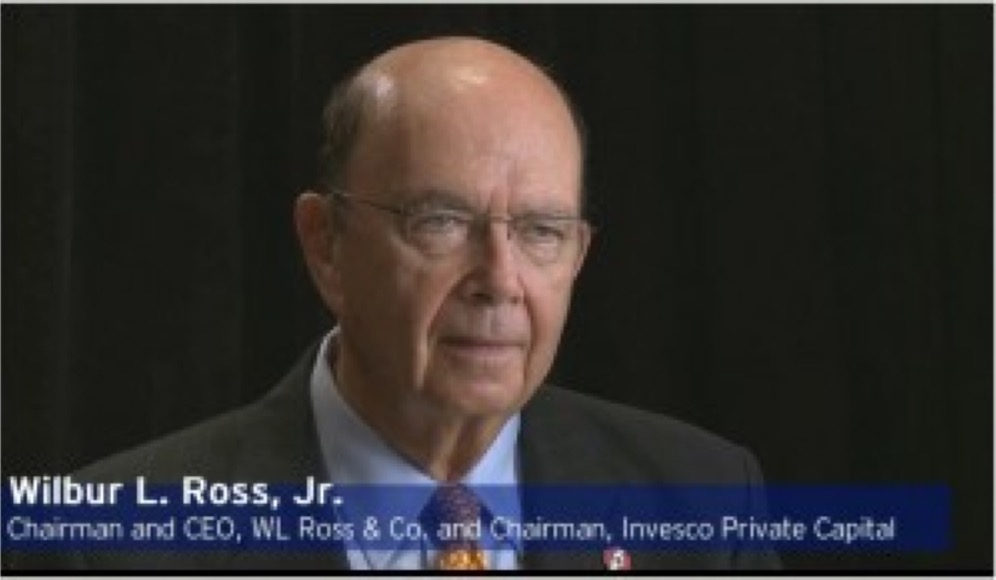5 months ago we featured a fascinating e-book by Emerging Trend Report's, Richard Karn, Credit and Credibility, about the future of markets, the global economy, global credit markets, and the 5 most pressing issues in the midst of this 'hinge of history' we find ourselves in.
Karn has been described as one of the finest analysts and writers in the financial industry. Karn happens to be the featured guest speaker in an upcoming webinar (1 CE credit), on December 2, on the subject of currency debasement, sponsored by BMG Inc.
Chapter Summary: Credit and Credibility
Chapter 1: Pay no attention to the man behind the curtain! discusses fiat currency, the financial excesses and abuse it engenders, interventionist policy response to perpetuate it, and the role of the US dollar going forward;
Chapter 2: Nobody’s right when everybody’s wrong develops our contention that all fiat currencies today have become derivatives of the US dollar;
Chapter 3: May you live in interesting times explores the extent to which emerging markets can decouple from “consumer” economies and the role of China as the litmus test for the thesis;
Chapter 4: The report of my death was an exaggeration details our contention the world has had its fill of “financial innovation”, and the only way the US economy will recover will be through its traditional strengths in agriculture, manufacturing, invention, and hard work; and
Chapter 5: Passing laws, just because offers our assessment of the anthropogenic global warming debate and pending legislation.
Below we are very pleased to feature once again, for its relevance, the first full chapter. Karn offers us a hype-less, lucid, insightful, look at the "macro" picture and begins to answer leading questions, proffered from his profound research. Tomorrow we will feature some of Richard Karn's latest thoughts, and on Thursday, we will share Chapter 2 with you. Very interesting reading. Enjoy!
Credit and Credibility
Chapter 1: Pay No Attention to the Man Behind the Curtain
Americans' willful ignorance of all things economic combined with a blind faith in our elected officials has made us all complicit to one extent or another, even if by omission, in the financial crisis rocking our country. Most of us have been viscerally aware of the economic problems our country faces, but as with health check-ups after a certain age we've become loathe to visit the doctor for fear of what all those warnings we've been studiously ignoring really mean. And the truth is that you do not need a doctorate to know that our economy is displaying the pathology of a critically ill patient that has been so badly, and we would argue purposefully, misdiagnosed that the disease itself has escaped real treatment while those treatments administered to the symptoms have only served to accelerate the progress of the disease.
We all want to believe that our government is acting in our best interests, that its shortcomings and failures are a matter of well-intentioned incompetence and not something more sinister. But political pandering to special interest groups routinely takes precedence over the common good and is largely responsible for bringing us to the brink of economic collapse today. In what has become an all too familiar scenario, successful lobbying resulted in the de- or self-regulation of another segment of the financial industry, which was accompanied by the concurrent elimination, subversion, or de-fanging of agency enforcement, and has culminated in another financial crisis rife with corruption, the cost of which is once again being borne by American taxpayers. It strikes most of us as perfectly obvious that politicians cannot serve two masters, especially when one pays better and arguably preys on the other, but the practice continues unabated-as is witnessed by the financials sector's continuing influence in Washington despite the revelations of the last 18 months.
The sheer scale of the debacle guarantees it will be the subject of myriad forensic dissections regarding what went wrong in the US and why, but the ETR submits historians will eventually point to the root of the problem being the very nature of the US dollar itself. The dollar has been a purely fiat currency since August of 1971 when President Richard Nixon ended its convertibility to gold. We support the contention that it is the inherent lack of fiscal restraint attendant to the subjective administration of a fiat currency regime rather than a rules-based currency accessible to all, such as a gold standard, that has by design or default culminated in the problems extant in the US economy today; that the dollar is the world's reserve currency has startling implications for the global economy well beyond the heated rhetoric its mismanagement has provoked amongst our allies, trading partners and rivals alike.
Let us not equivocate here: the economic failure we are witnessing today is not with capitalism as many would have us believe but with the abuse engendered by the interventionist policies that have been put into practice since the US dollar became a purely fiat currency. It is not a coincidence that since ending the dollar's convertibility to gold America has been transformed from the largest creditor nation on earth to the largest debtor nation, nor that it has fallen from one of the most admired nations on earth to one of the most reviled. Any economic system whose foundation rests on the shifting sands of a fiat currency is destined to collapse: this has been the case with every single fiat currency in history, twenty failing during the 20th century alone,[1] and the reasons are not difficult to fathom. When a government holds its currency-literally its stock in trade-in low regard, which history tells us a fiat currency regime invariably does when it can conjure money at will to spend as frivolously as it dares, inevitably certain of its citizens will too, giving rise to a Culture of Cheating. No longer restrained by such quaint notions as sound money of tangible lasting value or living within our means, the unbridled expansion of credit has witnessed a corresponding increase in the frequency of financial crisis, each of escalating magnitude and attended by ever more pervasive corruption.
Interventionist policy responses implemented ostensibly to resolve one crisis serve as well to foster the development of the next because the 'solution' never addresses the root of the problem, only its latest chaotic manifestation. Despite demonstrating time and again that low interest rates combined with massive liquidity injections invariably lead to asset bubbles that also invariably collapse,[2] that accurately summarizes the Fed and Treasury's uniform response to crisis: promote the assumption of more debt as the means to restore economic growth. But artificially stimulating growth through the creation of debt has been proven over the years to diminish the effect of each effort due to the increasingly debilitating economic drain attendant to servicing the accumulated debt, the misallocation of easy credit toward consumption rather than production, and the specious growth attendant to siphoning off 'profits' from transactions that merely shuffle the new paper hither and yon. The growing imbalance between the service and manufacturing industries is reflected in the persistent deterioration in results: in 1966, each dollar borrowed produced ninety-three cents of GDP growth; by 2007, a borrowed dollar produced less than twenty cents of GDP growth.[3] (Please refer to the charts on page 5.) In other words, each new effort requires more 'stimulus' than its predecessor in order to produce a similar result: we term this policy rut, which we believe has spilled over into many aspects of American society, the doctrine of 'more of the same, only harder' because the desired outcome is not to cure the problem but to perpetuate it by deflecting it in a new direction.
Nearly four decades of experience with the fiat dollar is plainly telling us that this doctrine has failed, and until the fiat dollar is rejected, the progression of financial crises will continue to accelerate until our economy, and indeed quite probably large swathes of the global economy, is hopelessly gutted and lay in ruins. We see this reflected in our vulnerable household finances which have deteriorated to the point we increasingly rely on revolving credit instead of savings as the most important source of liquidity after our jobs.[4] We see it in the uncontrolled growth of US trade imbalances, military adventurism, deficit spending, un- or underfunded entitlement programs, and ever more debt issuance and monetary expansion that have culminated in American taxpayers ultimately being responsible for more than $70 trillion dollars of debt,[5] not including that which we are currently assuming ostensibly to stave off financial collapse- a debt so large in fact it is literally only possible under a fiat currency regime.
Download Chapter 1 as a PDF.











